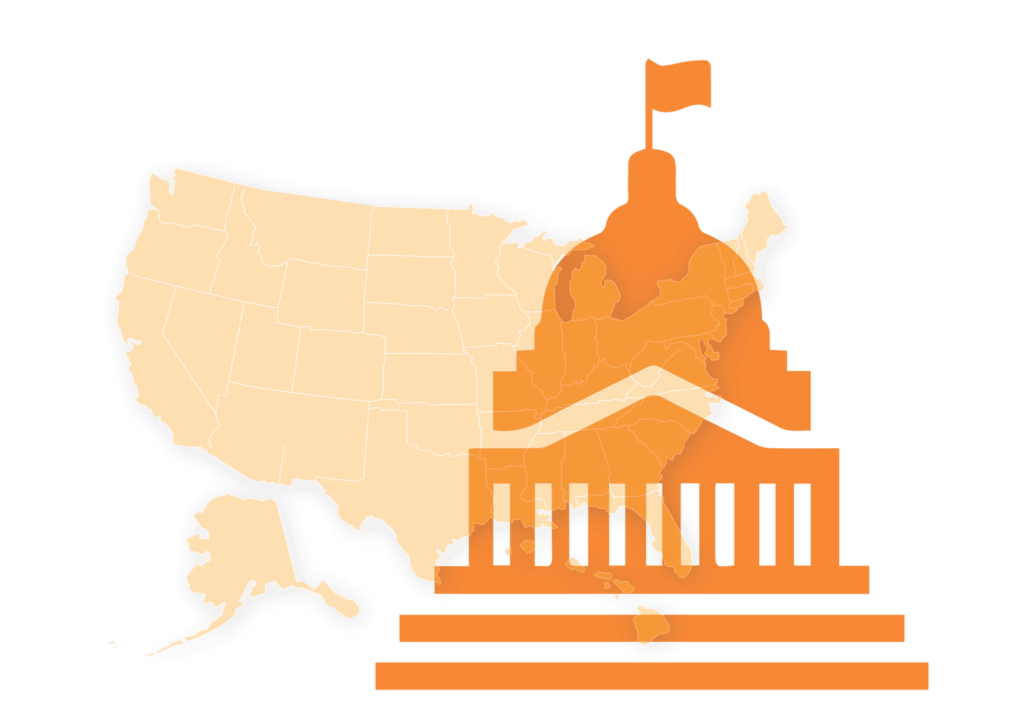Dear Chair Murray, Ranking Member Blunt, Chair DeLauro, and Ranking Member Cole:
As you work toward an appropriations bill for Fiscal Year 2023 (FY23), we write to express our continued support for the inclusion of significant investment in college completion initiatives. The undersigned organizations represent a diverse coalition of education associations, civil rights groups, think tanks, researchers, and stakeholders with strong interest in improving college graduation rates. The proposed $110 million Retention and Completion Grant program in President Biden’s FY23 budget request acknowledges the critical role the federal government can play in implementing or scaling evidence-based retention and completion reforms in partnership with states, systems of institutions, and colleges and universities. We urge you to fully fund this provision.
While high school graduation rates have improved steadily nationwide in recent decades , college completion rates have not kept pace and large racial gaps in degree attainment persist. Students from low-income backgrounds, students of color, and first-generation college students face greater barriers to earning a degree and accessing the high-quality jobs and upward mobility experienced by college graduates.
These are major challenges—but they can be addressed. Rigorous research demonstrates that college completion initiatives that provide comprehensive and customized supports are highly effective at moving the needle on postsecondary outcomes across a variety of regional and institutional contexts. The City University of New York’s Accelerated Study in Associate Programs (ASAP) launched in 2007 has doubled three-year associate degree completion rates among participants. The ASAP model has since been replicated in Ohio, California, Tennessee, and West Virginia. Students participating in the Bottom Line program, which operates in Massachusetts, New York, and Illinois, are 10 percentage points more likely to have earned a bachelor’s degree within six years after high school than their peers.
Federal investment to replicate proven college completion programs like these at more institutions and bolster the evidence base for other promising student success practices is urgently needed to get more students across the finish line to a college degree. A $110 million commitment for Retention and Completion Grants for FY23 will advance equity in our higher education system and set today’s students up for success in tomorrow’s economy as the nation continues to rebuild from the COVID-19 pandemic.
We applaud the initial $5 million investment in these areas included in the FY22 omnibus appropriations package, which represented a meaningful first step in this direction. Yet we also recognize that fully addressing the college completion crisis in the United States will take sustained federal attention and collaboration with states, systems of institutions, and colleges and universities. The proposed $110 million competitive grant program for college retention and completion will provide important support for students as they work toward a postsecondary credential, and we urge you to maintain this funding in the FY23 budget.
Sincerely,
America Forward
American Federation of Teachers
Association of Community College Trustees
Association of Public and Land-grant Universities
Center for American Progress
Higher Learning Advocates
Institute for Higher Education Policy (IHEP)
National Association of State Student Grant and Aid Programs (NASSGAP)
New America Higher Education Program
Results for America
State Higher Education Executive Officers Association
The Education Trust
The Institute for College Access & Success (TICAS)
Third Way
UnidosUS




